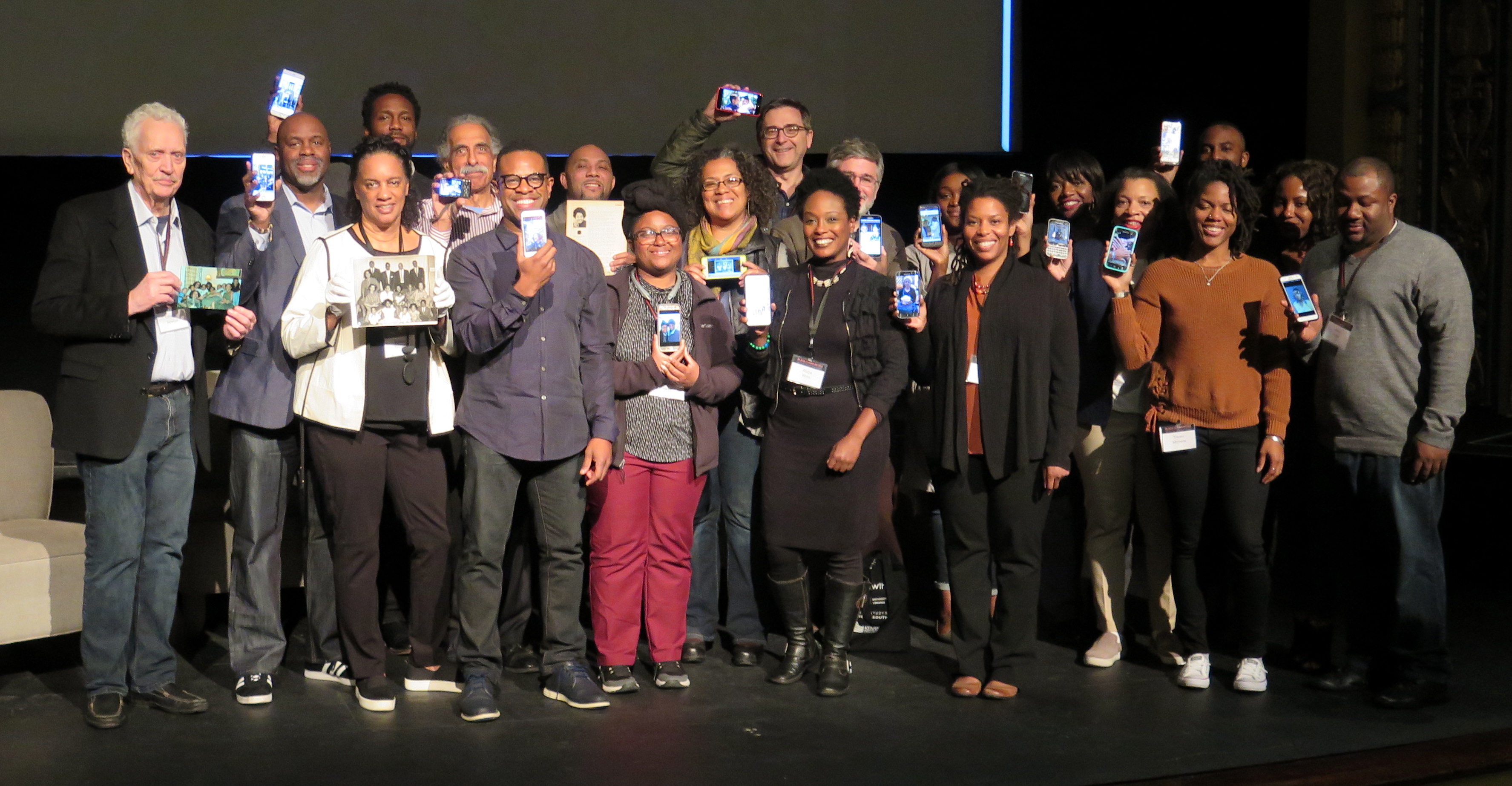
“I am a person driven by an individual’s story and the stories of community. I use it in my own work by always reminding myself that we all have our own stories that have shaped us.” – DDFR participant
Safe gathering spaces are necessary to healing. They build trust, which opens dialogue and provides the foundation for collaboration. Many of you, coordinators, activators, participants, know this. When I started Digital Diaspora Family Reunion (DDFR), I wanted to be part of a healing movement. The past 10 years have been an exhausting and deeply rewarding time in which I’ve aimed to carve out such spaces using two basic but powerful tools: storytelling and family photos. Two recent exciting roadshows have both affirmed and expanded this process:
THE POWER OF AN IMAGE
On April 23rd, I brought the roadshow to Durham, North Carolina for a second time as a feature in Black Communities: A Conference for Collaboration. In an intensive afternoon following my keynote speech, “Why Family Photos Matter”, a theater of participants swapped photos and stories with their neighbors and then shared their photo-stories from the stage.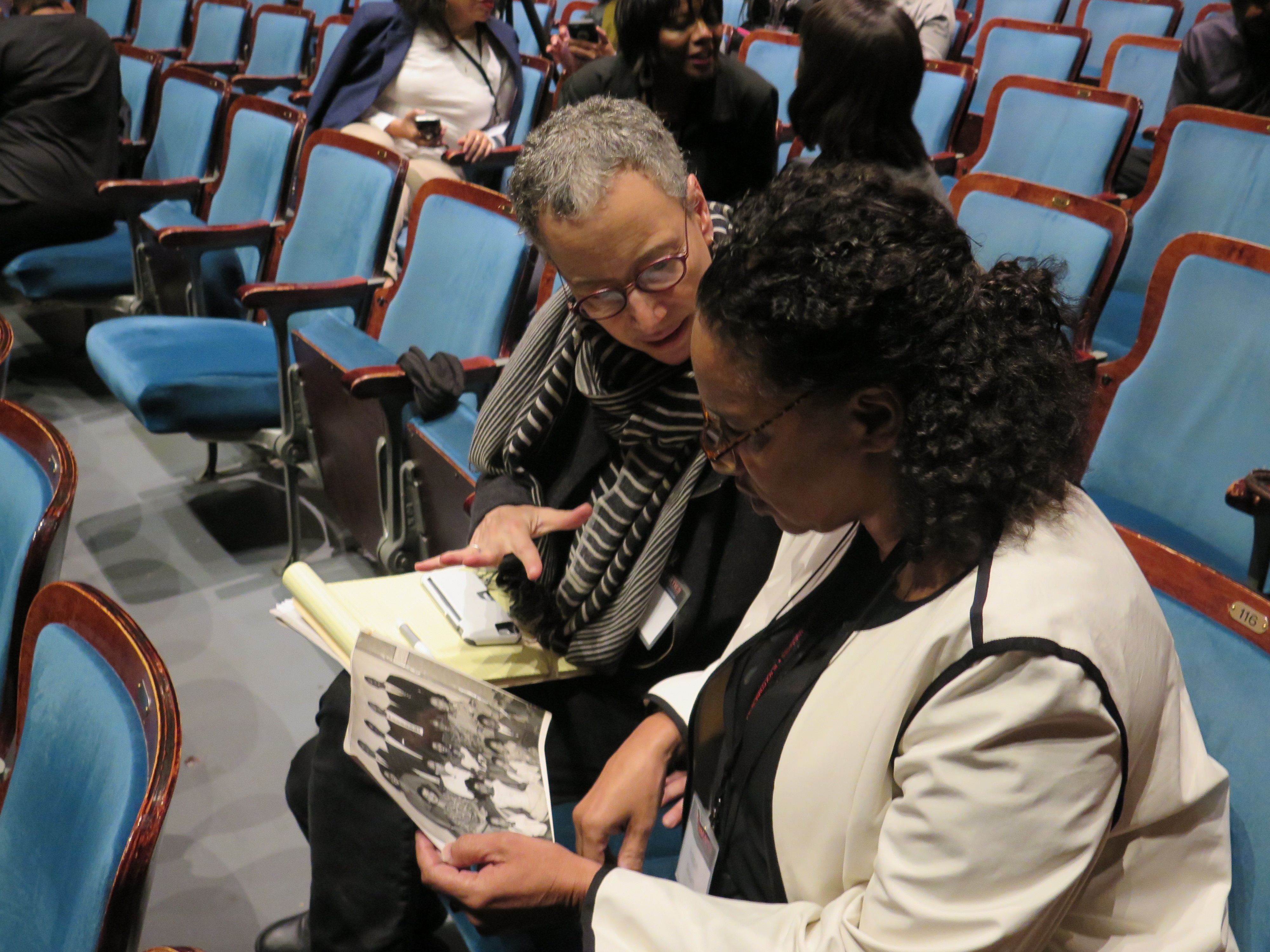
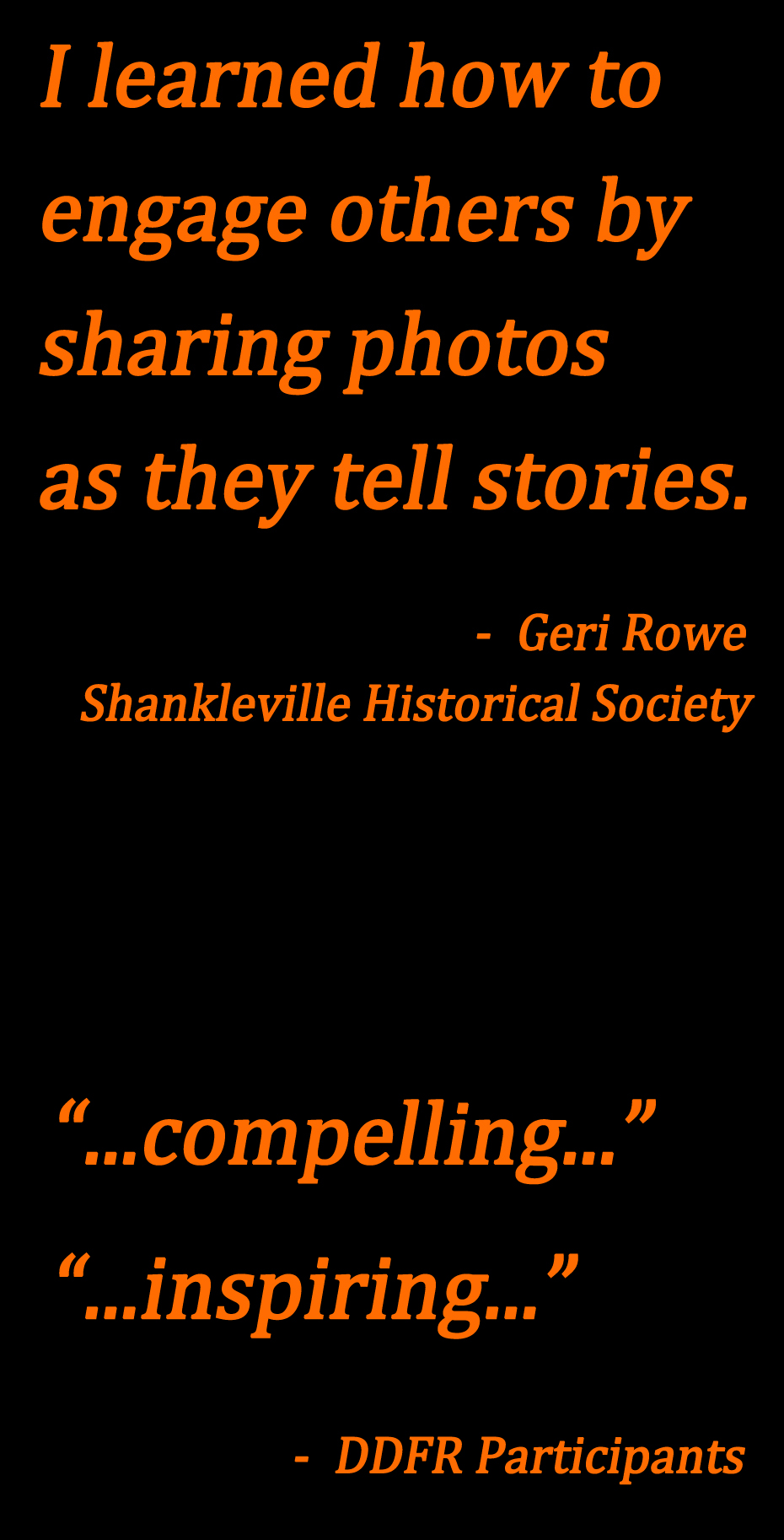 Nichelle Calhoun of the Afro-American Historical Association of Fauquier County said she was surprised by how connections were so easily made through the photo and story-sharing process. She noted that the techniques would be useful in her work conducting community oral history interviews.
Nichelle Calhoun of the Afro-American Historical Association of Fauquier County said she was surprised by how connections were so easily made through the photo and story-sharing process. She noted that the techniques would be useful in her work conducting community oral history interviews.
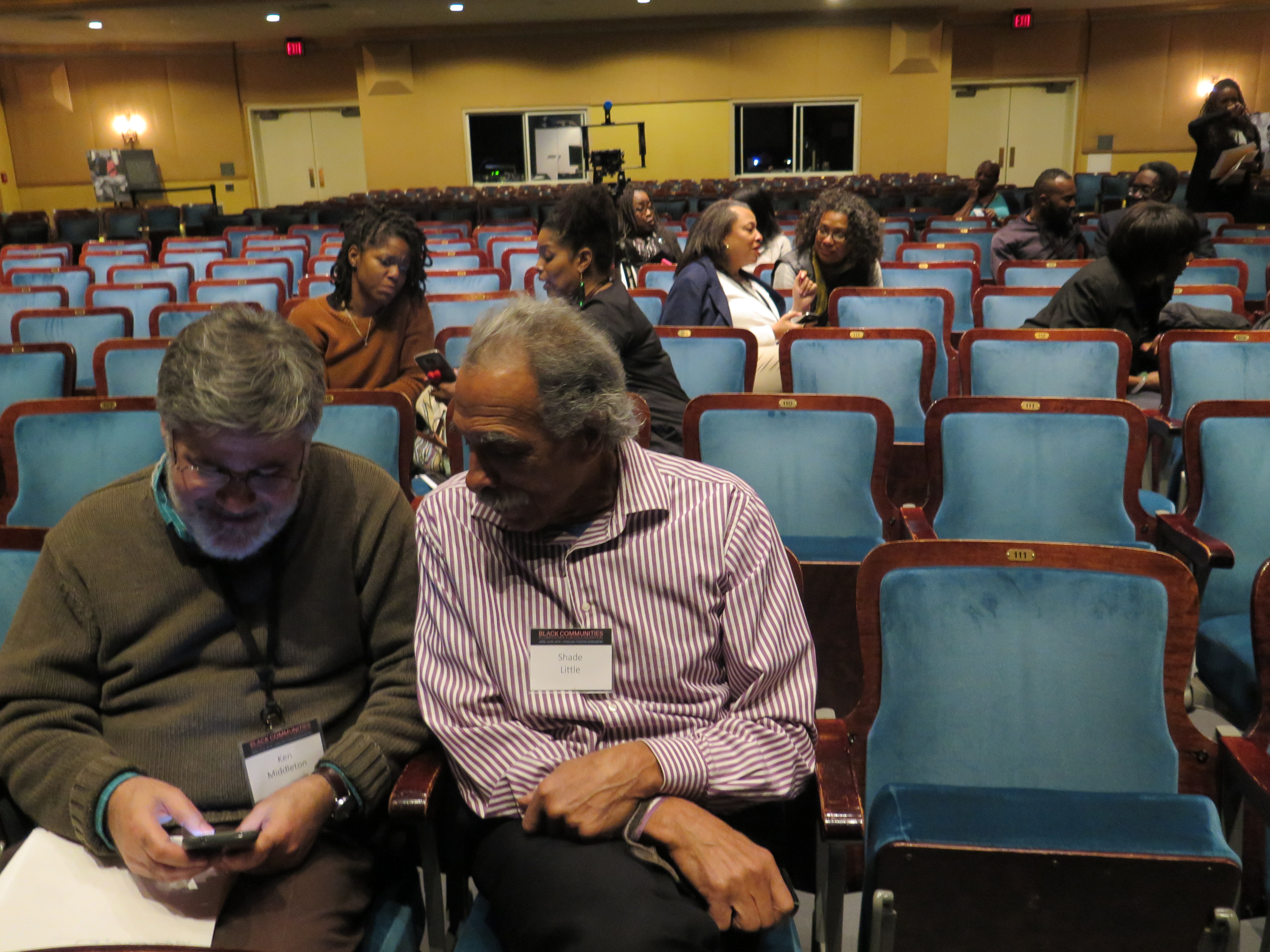 Geri Rowe of the Shankleville Historical Society wrote to us that she was “totally inspired and informed by the session,” and that she was surprised by the level of its interactivity.
Geri Rowe of the Shankleville Historical Society wrote to us that she was “totally inspired and informed by the session,” and that she was surprised by the level of its interactivity.
Della Pollock of the Jackson Center for Saving and Making History said she learned of “the power of a single image to connect strangers. I was struck by how the image triangulates two people who might otherwise find it difficult to talk, listen, and find their respective lives and worlds extraordinary.”
DURHAM, NC TO OAKLAND, CA
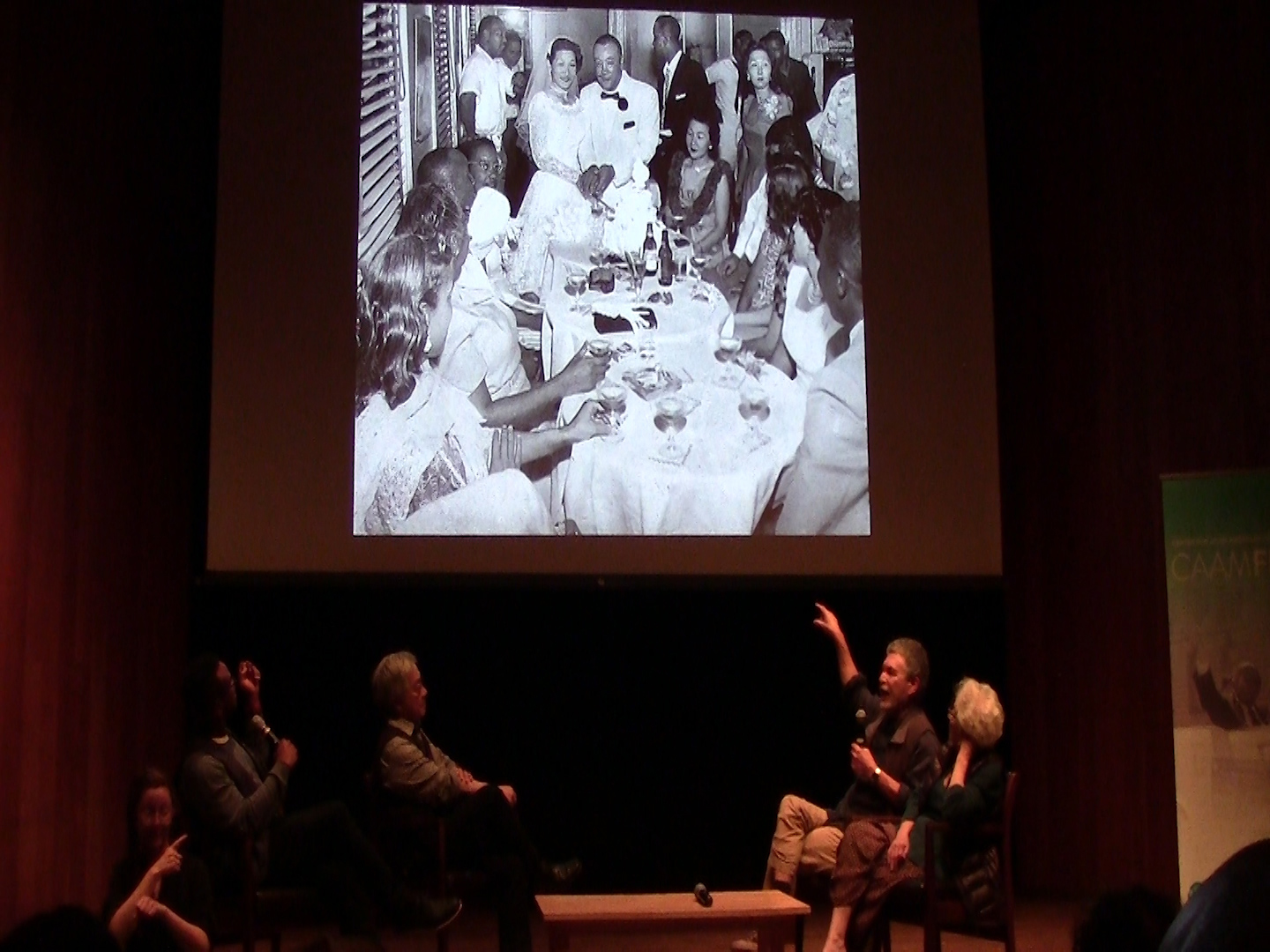 A month later for this year’s CAAMFest, Family Pictures USA had the official world premiere of its 30-minute pilot episode: “Detroit is the Future and It’s Okay” (trailer) at the Oakland Museum of California. The roadshow that followed was special for a number of reasons: we had support to have an ALS interpreter, which widened the roadshow’s accessibility, and we tried a round-table format during the first half of the photo-sharing session – a first in DDFR history.
A month later for this year’s CAAMFest, Family Pictures USA had the official world premiere of its 30-minute pilot episode: “Detroit is the Future and It’s Okay” (trailer) at the Oakland Museum of California. The roadshow that followed was special for a number of reasons: we had support to have an ALS interpreter, which widened the roadshow’s accessibility, and we tried a round-table format during the first half of the photo-sharing session – a first in DDFR history.
I found that the round-table discussion was really effective in opening a multi-directional conversation. The panel participants, photographer Lewis Watts, CAAM executive director Stephen Gong, and photographer Kathy Sloane were able to engage with the audience and each other, developing an on-stage rapport that was inviting and often humorous.
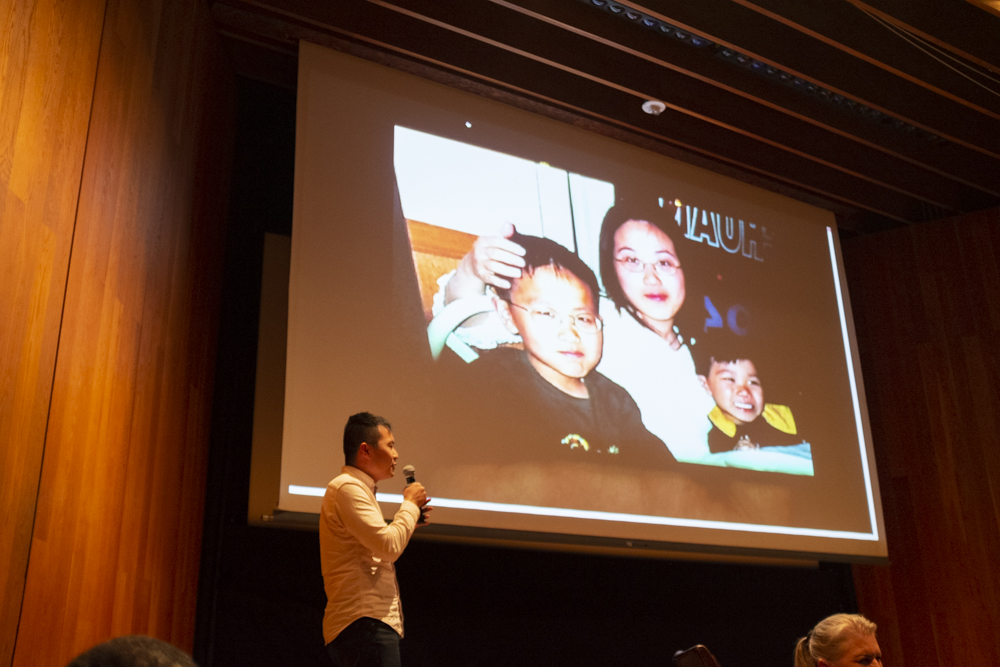
We got great feedback for this photo-sharing session. Participants called the session “compelling” and “inspiring”. Hoi-Fei Mok of API Equality Northern California (APIENC), which has an oral history project with queer and trans Asian Pacific Islanders in the Bay Area, wrote that they “loved the workshop and sharing stories” and was surprised by “the amount of history in the room”.
Paula Marie Parker (Black-Eyed Pea Festival of Oakland, CA) gave us her reflections on the session, writing: “Our family relationships are a powerful and universal unifier. I will probably use the element of interactivity in my own future work, as I am a writer/storyteller.”
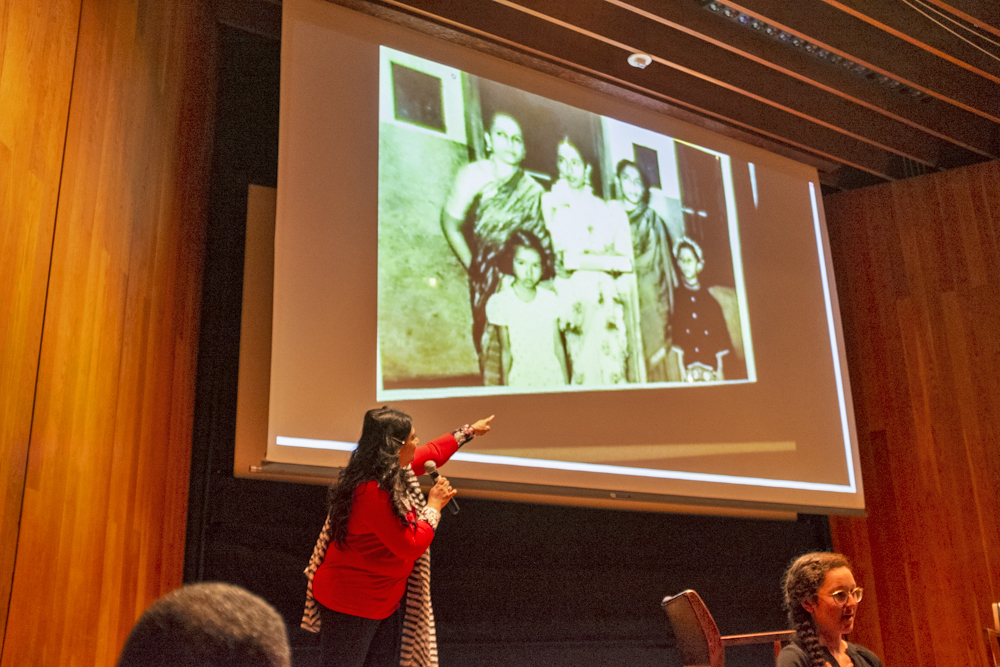
Kym R. Johnson shared some thoughts: “[Family Pictures USA] is a wonderful project which informs us how important family legacy is. Our photos are the visual representations that tell and affirm our stories and contributions. I was surprised by how interesting it would be to view the photos and hear the stories of people I did not know, and how weaving the photos and stories of people created the tapestry of the Detroit community”.
THE TAPESTRY OF A COMMUNITY
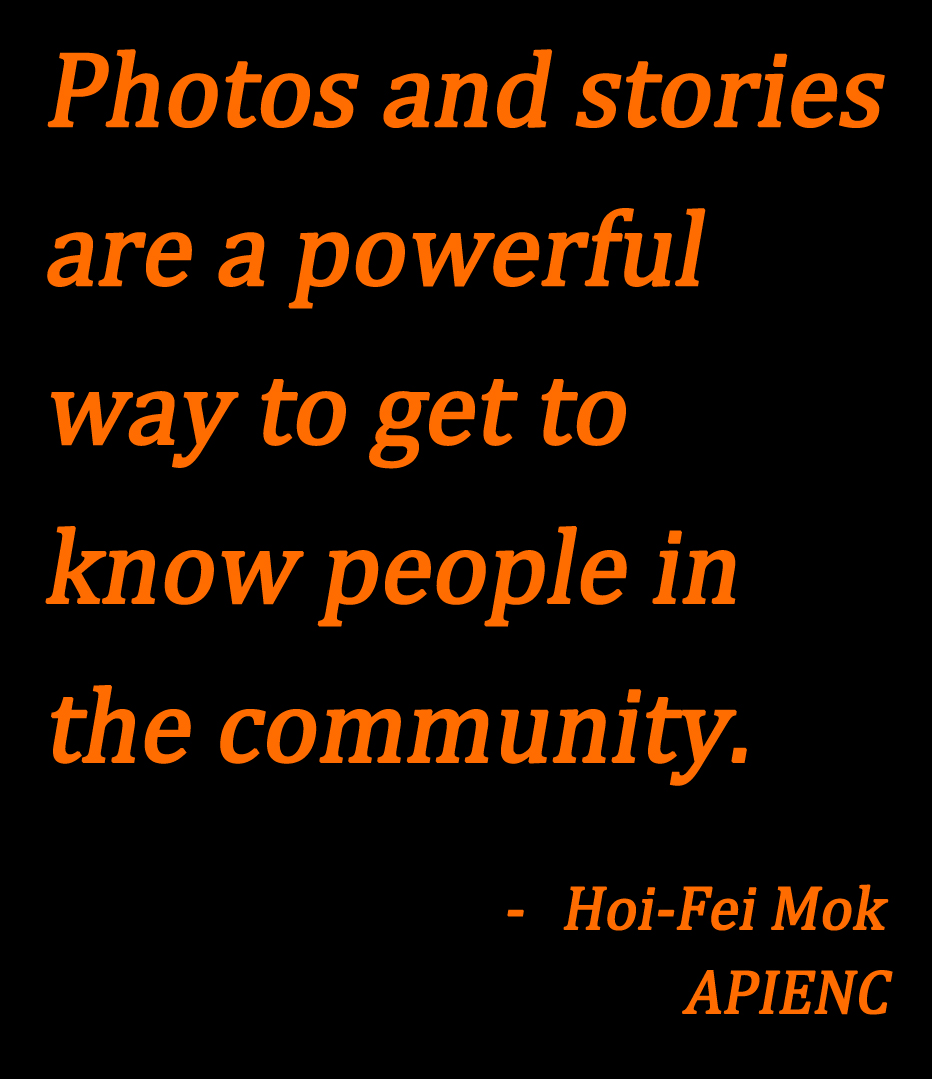 I loved everyone’s feedback and the image Kym provided of family photos and stories coming together to weave a tapestry of a community. In one month, DDFR traveled to two opposite points in the country: Durham, NC to Oakland, CA. The two roadshows within their own powerful contexts drew diverse voices from multiple generations and places of origin. They held space for conversations about class, immigration, place, gentrification, service, creativity, and love.
I loved everyone’s feedback and the image Kym provided of family photos and stories coming together to weave a tapestry of a community. In one month, DDFR traveled to two opposite points in the country: Durham, NC to Oakland, CA. The two roadshows within their own powerful contexts drew diverse voices from multiple generations and places of origin. They held space for conversations about class, immigration, place, gentrification, service, creativity, and love.
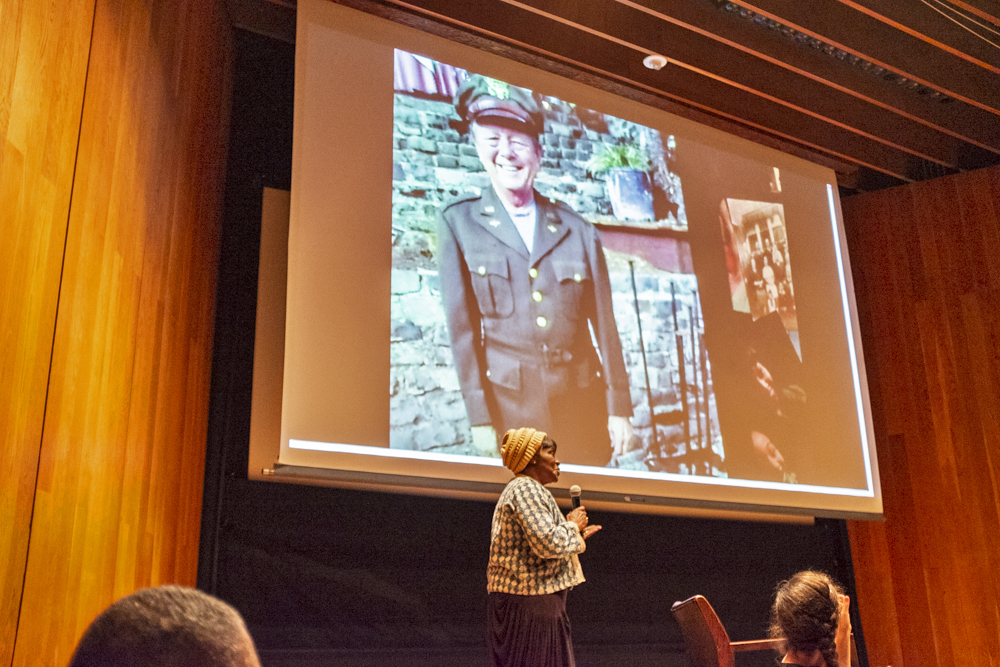
Wherever the project takes me, I’m always struck by the quality of work and passion of the individuals, collectives, and organizations that participate. Some of my goals with this project is to have participants leave with new tools to bring to their communities, and to encourage everyone to see the larger significance of their community stories.
10 years of DDFR is just the tip of the iceberg of a much larger history of community archiving and organizing work, which I’m proud to be a part of. I’m excited for the ways in which the project is expanding, as a transnational photo and oral history archive and as Family Pictures USA, in this context.
From Harlem, to Detroit, to Durham, to Oakland and beyond,
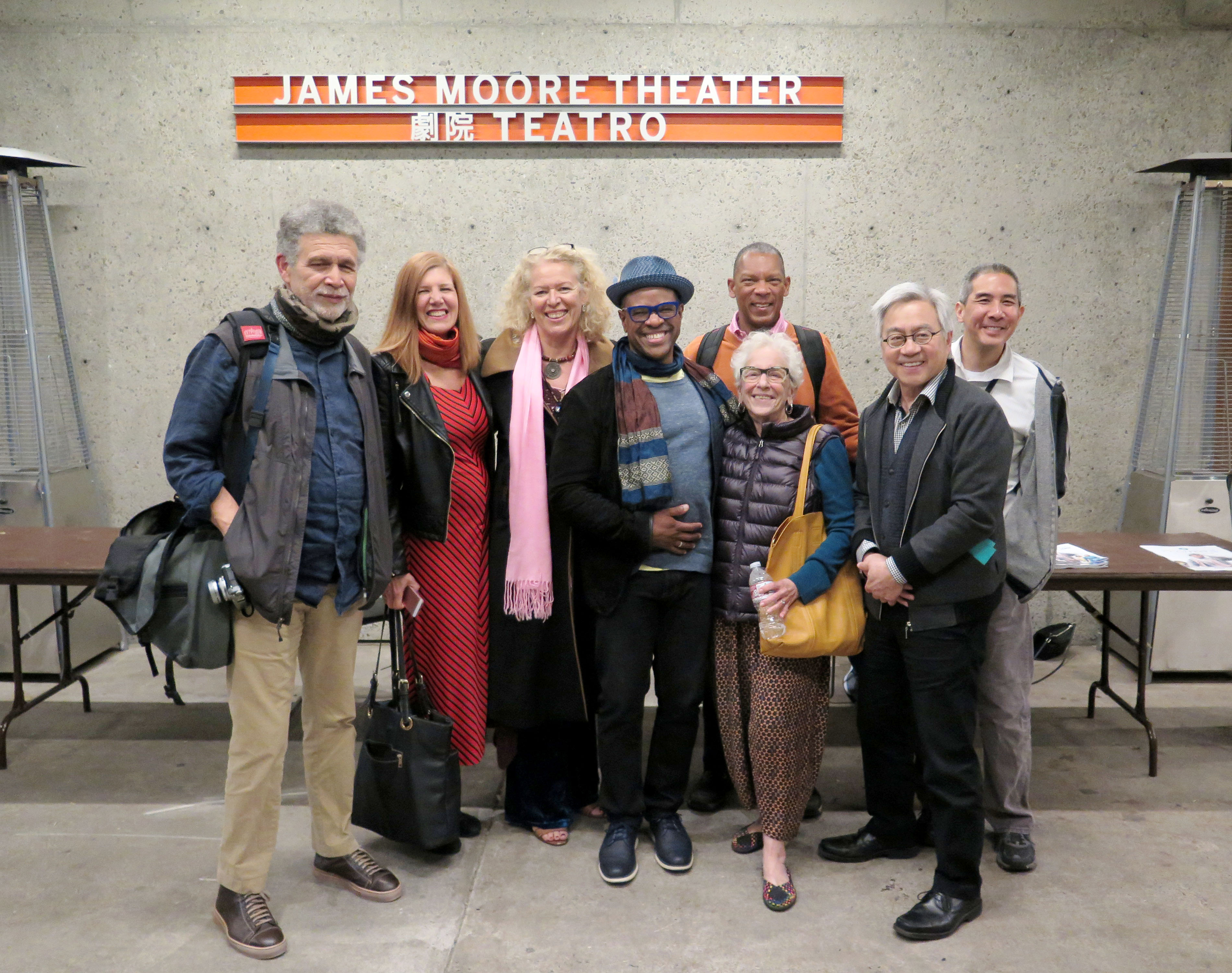
Thomas Allen Harris
Founder, Digital Diaspora Family Reunion
Host and Executive Producer, Family Pictures USA
I will not express regret for not having seen your video/website before now; because I have come to believe that “regret” is a waste of energy more properly reserved for future “opportunities.” I will say that I am “overjoyed” to have discovered: your video production “Through A Lens Darkly”, the incredible history that it chronicles, and the significant vehicle for discovering and building community that “1World1Family”/Digital Diaspora Family Reunion present.
I am the grandson of two incredible men: Caleb S. Mahlungulu, a South African Xhosa Prince, U.S. college educated engineer, inventor, educator, and a past Pastor of the First A.M.E. Zion Church of Zanesville, Ohio, on my father’s side; and of Leslie M. Shaw, who, among other accomplishments, was the first African-American supervising officer with the Columbus, Ohio Police Department, an Equities Fund Manager, and founder of the community organization that eventually became the Boys Clubs of America. My sister, Sharon D. Mahlungulu-Umoja, and cousins: Valerie L. Shaw and Tracy Shaw, are the family’s historians, and have many of our family pictures/ablums. I would like to know how we could become a part of the 1World1Family Community/Digital Diaspora Family Reunion, and submit copies of our family’s history/story toward further developing the “fabric” of our African diaspora.
Thanking you in advance,
Charles T. Mahlungulu, II